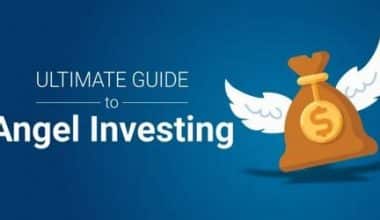Understanding what is a VC (venture capital) and how it works is important for entrepreneurs and individuals looking to become investors. Startup companies, small businesses, and entrepreneurs need financing (money) to grow from their initial stage to significant stages of growth. For many entrepreneurs, venture capital financing offers crucial financial assistance throughout the startup’s early stages of growth. It takes a lot of money for a startup to get from idea to implementation. This article will cover the basics of VC, What Is a VC Fund, What Is a VC Firm and illuminate how venture capital works in practice accordingly.
What is a VC (Venture capital)?
Venture capital (VC) is a kind of financing and private equity provided by investors to startup companies and small businesses with the potential for long-term growth. The majority of venture capital is often provided by wealthy investors, investment banks, and other financial organizations. It’s not always necessary to have money for venture capital. In actuality, it often manifests as managerial or technical knowledge. Small companies with outstanding growth potential or those that develop fast and seem set to keep growing typically get VC funding.
Alternative investments like venture capital are typically only accessible to accredited and institutional investors. VC funds are typically invested in by pension funds, significant financial institutions, high-net-worth investors, and wealth managers.
What Is a VC Fund?
Venture capital funds are a kind of pooled investment fund that oversees the cash of investors looking to acquire private equity holdings in start-ups and small- to medium-sized businesses with promising futures. These investments are often classified as having extremely high risk and large potential returns.
What Is a VC Fund Importance?
Venture capital funds identify and invest in promising start-up companies that have high growth potential. The funds raise capital from investors and then use that capital to invest in early-stage and expansion-stage companies in exchange for equity, debt, or a combination of both. This financing provides the necessary resources to help these companies grow.
Venture capital funds also offer assistance in the form of strategic guidance, mentoring, and managerial and operational expertise. They work closely with the companies they invest in, helping them develop strategies for scaling up, raising additional money, and evolving into high-growth enterprises. Oftentimes, as these companies increase in value, the venture capital fund stands to gain a significant return on its initial investment.
What is a VC firm?
Venture capital firms are a kind of investment company that invests in and mentors startups and other young, generally technology-focused businesses. Similar to private equity (PE) organizations, venture capital (VC) firms make investments in potential private companies using funds acquired from limited partners. Contrary to PE firms, VC firms often acquire a minority share in the companies they invest in—50% ownership or less. Moreover, portfolio companies are the firms that make up a company’s variety of enterprises.
What is a VC Firms work?
Startups often seek out VC companies to get the capital they need to begin or maintain their operations. The companies will then lend money to the companies they choose after doing due diligence.
A VC firm typically accepts an ownership position in the startup business that is less than 50% in exchange for capital. The bigger VC firms will then get actively involved in making sure the companies they have invested in flourish and make a profit. They will do this in a variety of ways, including by actively participating in the marketing, supply chain, sales, and other parts of the business’s everyday operations.
What Is a VC Firm’s objective is to raise the startup’s value before financially exiting the investment via the sale of the fund’s stock or an IPO.
What is a venture capitalist?
The tеrm “vеnturе capitalist” rеfеrѕtо investors who wоrkfоr a vеnturе capital соmраnу. They actively look for investment options for the company and aid in raising money for venture capital firms.
The Pros and Cons of Venture Capital
New enterprises without access to stock markets or adequate cash flow to incur loans might get investment from venture capital. Because investors obtain stock in promising companies, this arrangement may be advantageous to both parties because it provides businesses with the capital they need to jumpstart their operations.
However, the advantages of VC investments are not the only ones. Oftentimes, VCs provide mentorship services to assist fledgling companies in establishing themselves as well as networking services to assist them in locating talent and advisers in addition to investment capital. Solid VC backing may be used to leverage more investments.
Moreover, a company that takes VC funding may forfeit creative control over its future course. VC investors are likely to seek a sizeable portion of the company’s stock and may start putting pressure on the management of the business. Many VCs may put pressure on the firm for an early exit since they are simply looking for a short, high-return payment.
Pros
• Provides capital for early-stage companies to start their own businesses.
•Without assets or cash flow, companies might still receive VC funding.
• Startups can benefit from VC funding by taking use of mentorship and networking programs.
Cons
• Increase your demand for shares of the company.
• Businesses run the risk of stifling innovation as investors pressure them for quick returns.
• VCs could put pressure on companies to sell their investments early rather than focus on long-term growth.
How Do Venture Capital Funds Operate?
The following are venture capital companies that finance start-up businesses in their first stages of growth.
In thеvеnturе capital mаrkеt, there аrеfоur different ѕоrtѕоfраrtісіраntѕ:
• Business owners that want to actualize their ambitions by starting their own companies but require money.
•Investors who are willing to take a lot of risks and want to make a lot of money.
• Financial advisors who are seeking to sell or IPO a company.
• Entrepreneurs, investors, and bankers who profit from the creation of markets for venture capitalists.
What Is a VC Investment?
Regardless of the business’s stage, a VC company carefully investigates the founders, including their background and professional competence. Essentially, effective investment selections need thorough due diligence.
The VC company will contribute capital in return for an equity share if the due diligence procedure is effective and the business’s growth prognosis is positive. Usually, there is more than one round of funding, and the venture capital company will take an active role in running the portfolio business.
What is a VC Investment stage?
Portfolio companies go through many stages in the VC process as they develop and flourish. While some venture capital firms focus on certain stages, others may consider making an investment at any moment.
- Seed round funding: This is the initial round of venture capital fundraising, in which investors provide a modest sum of money to support the development of a startup company’s business strategy and minimum viable product (MVP).
- Early-stage funding: Early-stage finance, also known as Series A, Series B, and Series C rounds, helps startups expand. Because startup entrepreneurs are expanding their companies, the investment amounts are higher than in the initial stage.
- Late-stage funding: Late-stage VC investment includes the series D, series E, and series F rounds. Startup companies need to be making money and exhibiting strong growth at this time. Even if the business may not yet be profitable, the future seems bright.
What is VC Process?
Any company seeking venture money should submit a business plan to a venture capital firm or angel investor. After deciding whether or not to pursue the idea, the company or investor will conduct due diligence, which comprises investigating the company’s background, leadership, and strategy.
Those who work in venture capital typically have prior experience in investing, generally as equities research analysts, and an MB. Therefore, professionals in venture capital (VC) also often focus on a single sector. For instance, a venture саріtаlіѕt with expertise іn thе healthcare ѕесtоr mау hаvе рrеvіоuѕlу wоrkеd аѕ a hеаlthсаrе industry analyst. The firm or investor will guarantee a capital investment in exchange for company shares after thorough diligence. Typically, the distribution of funds occurs in rounds rather than all at once. The соrроrаtіоn оr іnvеѕtоr thеn actively раrtісіраtеѕ іn thе fіnаnсеd company, providing аdvісе аnd оbѕеrvіng its dеvеlорmеnt prior to dіѕburѕіng new саѕh.
After some time has passed, typically four to six years after the original investment, the investor leaves the business by starting a merger, acquisition, or initial public offering (IPO).
Venture capital vs private equity
Private equity is seen as including venture capital. Private equity invests in well-established businesses, while venture capital encourages enterprising startups and companies.
The same objective is shared by venture capital and private equity: to raise the value of the company they invest in and subsequently sell their equity portion (also known as ownership) for a profit. They vary, nonetheless, in four key ways:
• The companies they choose to invest in
• How much money was put in
• The equity they are able to accumulate
• Over the duration of a business’s existence.
Angel investors vs. venture capital investors
High net worth individuals (HNWIs), commonly referred to as angel investors, and venture capital companies typically offer venture capital for tiny enterprises or for up-and-coming organizations in new areas. The National Venture Capital Association is a consortium of various VC firms that pool their resources to back innovative startups.
Angel investors typically consist of a wide range of people who have acquired their riches from various means. However, they often have backgrounds as entrepreneurs or as recently retired executives from the corporate giants they’ve created.
What Is VC at Work?
(Venture capital) VC at Work is an enterprise software platform that provides venture capitalists with real-time insights into their investments and portfolio companies. Investors can evaluate their investments, find new opportunities, and follow their portfolio firms’ progress on the site. VC at Work can be used to monitor growth, analyze financials, benchmark performance, and track KPIs. In a nutshell, it also enables venture capitalists to easily share information with their colleagues and advisors.
What Is an Example of a VC?
Venture capital is a type of private equity capital that typically comes from professional funds to new businesses and small businesses that are thought to have growth potential in the long run.
A well-known example of a venture capital firm is Andreessen Horowitz. Founded in 2009 by Marc Andreessen and Ben Horowitz, the company has become a highly successful firm, having made investments in notable companies such as Airbnb, Twitter, and Twitter. The firm focuses on technology investments and has become a leader in the venture capital industry.
What Does VC Mean as a Title?
VC ѕtаndѕ fоr Vеnturе Cаріtаlіѕt” аnd is a tіtlе gіvеn tо individuals іn the vеnturе саріtаl industry. These individuals invest capital in high-potential, early-stage startups, often in exchange for equity in the company.
How Does a VC Make Money?
Venture capitalists make money by investing early in the businesses of startup founders. In exchange for a return on their investment, they can purchase preferred shares in the firm or provide debt financing. The venture capital company can make a big profit if the company succeeds and decides to sell or go public. They earn more money as their portfolio firms grow and prosper because they receive management fees from those businesses.
What Does VC Stand For in Mental Health?
VC stands for voluntary counseling. Voluntary counseling alternatively refers to mental health counseling services that are offered to individuals on a voluntary and non-mandated basis.
How Are Venture Capitalists Compensated?
Venture capitalists typically receive a percentage of the returns from their investments. Generally, this is accomplished by giving the VCs a modest stake in the company in exchange for their financial backing. Additionally, venture capitalists may also receive fees or commissions related to the transaction. For example, if a venture capitalist helps to introduce a company to potential investors, they may receive a success fee.
Conclusion
It is clear that understanding what a VC is can provide helpful insight into the venture capital world. VCs provide essential capital and expertise to help startups grow, and understanding the different types of investments they offer can be invaluable for entrepreneurs and investors alike. VCs can provide seed, early-stage, and even later-stage finance if the deal is suitable. Finding the right VC partner is a critical step in a startup’s journey to success, and knowing what to look for can help guide the decision.
What is a VC FAQ
What Is a VC investment?
VC investment, also known as venture capital investment. The primary goal of venture capital financing is to enable businesses to achieve explosive growth without having to rely solely on debt financing.
How are VC investors compensated?
The carried interest of their investments and management fees are how venture capital firms generate money. The majority of VC firms get 20% of the private equity fund’s profits, with the remaining 80% going to its limited partners. Additionally, general partners may be charged an extra 2% fee.
What Is a VC in Business?
A type of financing for business start-ups and expanding businesses clearly explains what is a VC in business. Venture capital is typically provided in exchange for equity or an ownership stake in the company.
Do you have to repay the VC money you received?
A growth capital term loan is the most common kind of venture financing. These loans often begin with a 6- to 12-month interest-only (I/O) phase and must typically be returned within three to four years.






